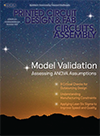Press Releases
October 2017 — The Balver Zinn Group a leading global manufacturer of solder materials, announces that they will exhibit together with LLE Soluciones & Repstronics at the SMTA Mexico Expo & tech Forum. The SMTA Mexico Expo is scheduled to take place October 18-19, 2017 at the hotel Riu Plaza in Guadalajara, Mexico.
Manassas, VA – October 5, 2017 ZESTRON, the globally leading provider of high precision cleaning products, services and training solutions in the electronics manufacturing and semiconductor industries, is pleased to announce that it will host “Stencil, Underside Wipe and Misprint Cleaning” on Thursday, October 26, from 1:30 PM to 2:30 PM EDT.
A powerhouse in the instrumentation market, Spring Lake, MI-based Medallion Instrumentation Systems (Medallion) designs and builds rugged and reliable gauges for the marine, power sports, military, on-highway, con/ag and recreational vehicle markets.
The last week of September witnessed an auspicious gathering at Europlacer’s manufacturing base and French HQ in Rocheserviere, Western France. Local dignitaries and factory personnel mixed with global customers and members of Europlacer’s international sales and support teams to declare the prestigious new facility open.
Corona, CA – October 4, 2017 – Aqueous Technologies’ Tech Tuesday Webinars continue with “SMT WARS – Lessons from a Contract Manufacturer and Their Customer Who Sued Them”.
PHOENIX--(BUSINESS WIRE)--Avnet (NYSE: AVT), a leading global technology distributor, today announced it has been awarded a 2016 Total Cost of Ownership (TCOO™) Supplier Award from Celestica, a leader in design, manufacturing and supply chain solutions for the world's most innovative companies.
Press Releases
- Altus Partners with Sellectronics to Enhance Manufacturing Capabilities with PVA Delta 8 System
- ITW EAE Celebrates Major Milestone in Domestic Manufacturing Expansion
- Micro Technology Services Selects PBT Works CompaCLEAN III for Advanced PCB Cleaning Performance
- Indium Corp. is Electrifying the Future with Advanced Materials Solutions at Productronica


